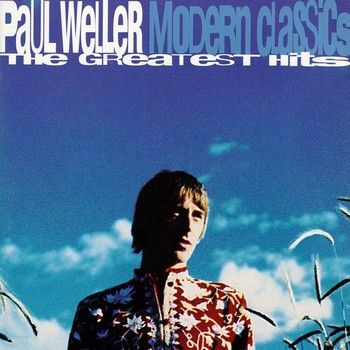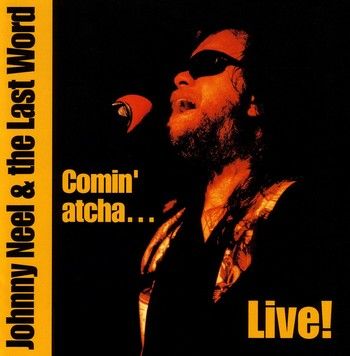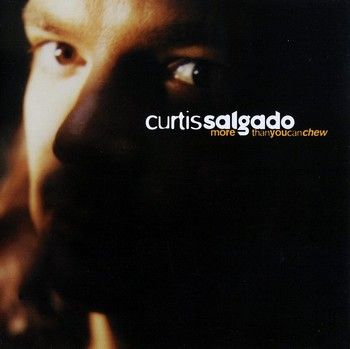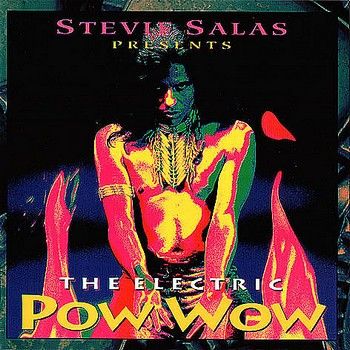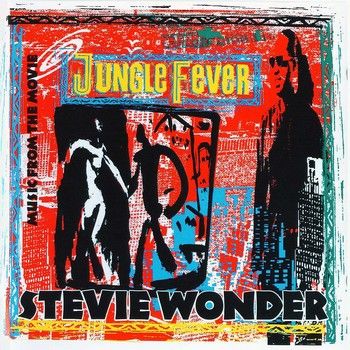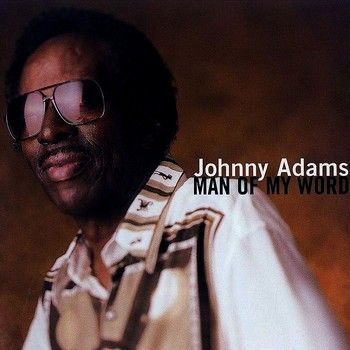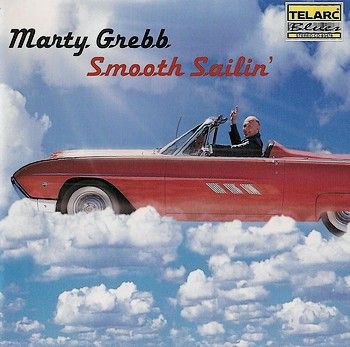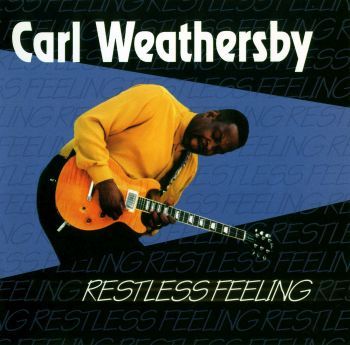
Vocalist, songwriter, and guitarist Carl Weathersby is a soul-blues crooner in the classic Chicago tradition. Best known for his work with Billy Branch & Sons of the Blues, Weathersby's first album, 1996's Don't Lay Your Blues on Me, was hailed as genuine, state-of-the-art Chicago blues for the '90s. Weathersby released his second album, Looking Out My Window, in 1997, and the raves continued; the song "The Blues Follow Me Around," which Weathersby first recorded with Branch, was nominated for a Handy Award. Born in Jackson, MS, Weathersby was eight when his family moved to East Chicago, Indiana. He spent his summers back home with relatives in Mississippi. Weathersby grew up immersed in blues music and has many family links to the blues, R&B, and Motown legacies: he's related to the late Leonard "Baby Doo" Caston, Willie Dixon's pianist in the Big Three Trio, a popular Chicago group in the early '50s; Weathersby's cousin is Leonard Caston, Jr., a member of the Chicago soul group the Radiants, who had a 1965 Chess Records hit with "Voice Your Choice"; singer G.C. Cameron from the Motown group the Spinners is another cousin. Additionally, a neighbor was a cousin of Hound Dog Taylor, and Weathersby's father was friendly with Albert King. One day while Weathersby was practicing King's licks from a 45 rpm recording of "Crosscut Saw," his father and King overheard him. King encouraged the boy, who hadn't realized his identity until then, and eventually hired him as a rhythm guitarist for short road trips in 1979, 1980, and 1982. Before becoming a full-time musician with Branch's Sons of the Blues, Weathersby worked in a steel mill, as a police officer, and as a prison guard. He also spent time in Vietnam serving in the Army from 1971 to 1977. His life experiences in all four occupations are rich fodder for his songwriting, which is as fresh, original, and life-affirming as one is likely to find from any other contemporary blues player. Weathersby spent 14 years, from 1982 to 1996, with harmonica player Branch's Sons of the Blues before he decided to have a go at leading a band under his own name. For his Evidence albums, Weathersby is accompanied by two great New Orleans musicians, who add just the right touches of funk to the band's sound: David Torkanowsky on piano and keyboards and Herman Ernest III on drums, the latter a key element in Dr. John's quartet, the Lower 911. Weathersby's first album, Don't Lay Your Blues on Me, won nominations in the 1996 Living Blues Critics' Awards for Best New Blues Album, Best Blues Album, and Best Debut Album. Weathersby was also nominated for a 1997 W.C. Handy Blues Award for Best New Blues Artist. Subsequent outings include 1998's Restless Feeling and 2000's Come to Papa. © Richard Skelly © 2014 AllMusic, a division of All Media Network, LLC. | All Rights Reserved http://www.allmusic.com/artist/carl-weathersby-mn0000166967/biography
Life has not been easy for bluesman Carl Weathersby. First, there was a hellish tour of duty in Vietnam, then the looming sense of danger that comes with laboring as a prison guard and the frustration of being a lowly steelworker. That frustration has been further stoked by his residence in a city he disdains--Chicago! Luckily, he possesses a guitar through which he releases some of his pent-up feelings. Restless Feeling (Evidence) is a form of musical therapy for Weathersby and a musical treat for the rest of us. Weathersby learned his craft honestly, sneaking peeks as a kid at guitar guru Albert King at Chicago's Cadillac Club and gawking in awe at Howlin' Wolf during the Wolf's sound checks at that same venue. Years later, Weathersby wound up playing rhythm for the cantankerous King, a job that led to a 14-year stint with the popular S.O.B.s (a group boasting the sons of legendary bassist/songwriter Willie Dixon and harmonica player Carey Bell). His reputation as a formidable guitarist was enhanced with the release of the W.C. Handy Award-nominated Don't Lay Your Blues on Me and its successor, Looking Out My Window. The new album consolidates those earlier successes. As on his previous discs, Weathersby's approach to the blues is open-minded. Elements of Southern-style soul and tough-minded R&B fuse to produce a sound that acknowledges the past while remaining firmly planted in the present. His choice of material tells much of the story. In addition to his own compositions, Weathersby includes covers of songs by Johnny "Guitar" Watson and Al Green. Sure, listening to tunes like "Matchbox Holds My Clothes," one cannot avoid comparing Weathersby to Albert King--indeed, King penned the song--yet the younger man puts his own spin on things with guitar work that is more facile than King's. Watson's "Real Mutha Fuh Ya" reveals Weathersby's affinity for funky R&B. A slinky bass figure and in-the-pocket drumming lock down the groove, allowing space for jazz-inflected keyboards to add subtle color. Weathersby's laconic drawl brims with wry humor, yet lurking beneath is the feeling that the singer has learned life's lessons the hard way. There's nothing funny about Weathersby's guitar playing; it crackles with intensity. "Rhymes," a relatively obscure Al Green ditty, retains its original Memphis-soul feel. The popping bass line, deceptively uncomplicated drumming and keening organ are all intact. Weathersby, no Al Green by a long shot, gives it his best shot. Limited in range, he croaks away in a baritone not dissimilar to blues singer Taj Mahal's (check out the playfully gruff introductory vocal bit). Here, Weathersby's guitar playing is relatively restrained, using the song's melody as a point of reference. On his own compositions, the bluesman's aggressive nature generally prevails. On cuts like "Woman's Song" and "Everything I Do," his guitar playing exhibits a kind of primal power. The slow-simmering blues of the title track (also an original) finds the singer unable to shake the feeling that his lady is fooling around on him. The singer's pain and frustration are almost palpable; bristling with anger; his guitar solo is yet more eloquent, articulating the depths of his emotional despair with angular, single-note runs. On this song and elsewhere, Carl Weathersby answers definitively the age-old question--How blue can you get? © Metro Publishing Inc. © Nicky Baxter http://www.metroactive.com/papers/metro/01.21.99/weathersby-9903.html
“Elements of Southern-style soul and tough-minded R&B fuse to produce a sound that acknowledges the past while remaining firmly planted in the present. His choice of material tells much of the story. In addition to his own compositions, Weathersby includes covers of songs by Johnny "Guitar" Watson and Al Green”. A great soul, blues and R&B album and HR by A.O.O.F.C. Listen to Carl’s outstanding “Don't Lay Your Blues on Me” album [All tracks @ 320 Kbps: File size = 142 Mb]
TRACKS / COMPOSERS
1.Matchbox Holds My Clothes - Albert King
2.A Real Mutha For You - Johnny "Guitar" Watson
3.It's You That I Want - Rico McFarland
4.Restless Feeling - Carl Weathersby
5.Woman Song - Carl Weathersby
6.Wheel of Fortune - Steve Nails, Victor Palmer, Alan Wiley
7.We All Want To Boogie - Allen Toussaint
8.Meadville,Mississippi - Carl Weathersby
9.Everything I Do - Carl Weathersby
10.Rhymes - Al Green, Mabon Hodges
11.Tired Of Being Alone - Rico McFarland, Mike Gray
12.Glory Be - Sam Hopkins, Clarence Lewis, Morgan Robinson
13.She's Gone - Rico McFarland
MUSICIANS
Carl Weathersby - Electric & Acoustic Guitar, Vocals
Rico McFarland - Electric & Acoustic Guitar, Vocals on Track 11, Backing Vocals
Dave Smith - Bass
David Torkanowsky - Hammond B-3, Keyboards, Piano
Steve Potts - Drums
Juanita Brooks - Backing Vocals on Tracks 10, 13
BIO (WIKI)
Carl Weathersby (born Carlton Weathersby, 24 February 1953, Jackson, Mississippi) is an American electric blues vocalist, guitarist, and songwriter. Weathersby has worked most notably with Albert King and Billy Branch, and is now a solo artist. Weathersby was also nominated in 1997 for a W.C. Handy Award for 'Best New Blues Artist'. Weathersby spent his early years in Meadville, Mississippi, a place he still considers home, although when he was aged eight, his family moved to East Chicago, Indiana. As a teenager, Weathersby began to learn the guitar. One day, after practicing "Cross Cut Saw" many times through, he decided to show his father. After he finished playing it, his father's friend, a man Weathersby knew as Albert, the diesel mechanic, said, "Man, that ain't the way that song goes, that ain't the way I played it." The mechanic turned out to be Albert King, who then showed Weathersby how to play it. Despite Weathersby's mistake, King was impressed and eventually signed Weathersby on to play rhythm guitar with him on tour. However his career as musician started many years later. Before then, Weathersby worked many jobs ranging from steel mill worker to prison guard and police man. He also served in the U.S. Army from 1971 to 1977, during the Vietnam War. After the Vietnam War, Weathersby began playing rhythm guitar with Albert King. It was only on short road trips between 1979–81, but the experience solidified Weathersby's identity as a blues musician. He then started filling in for the guitarist of the Sons of Blues, Carlos Johnson, who Weathersby described as "a pretty shaky guy, you know. He could show up just as easy as he couldn't show up..."Eventually the band hired Weathersby on as their full-time guitarist, a position he held for the next fifteen years. His position as guitarist for the Sons of Blues earned him a name among the blues fans of Chicago, it also left him feeling discontent. Because of his growing popularity, Evidence Records released Weathersby's first album, Don't Lay Your Blues on Me (1996). They published all of his subsequent albums, up to Best of Carl Weathersby. His only live album, In the House, was recorded at the Lucerne Blues Festival in Switzerland, when he was joined by the harp player and past band mate Billy Branch. In The House was released under the CrossCut record label. Weathersby has since self produced the album, Hold On.


